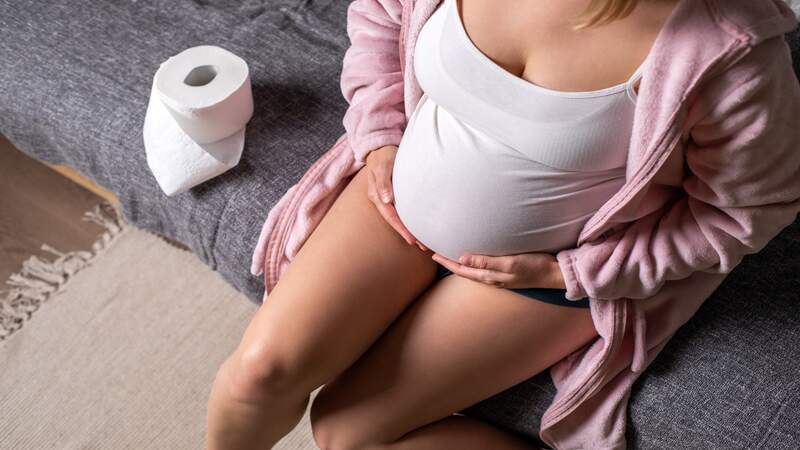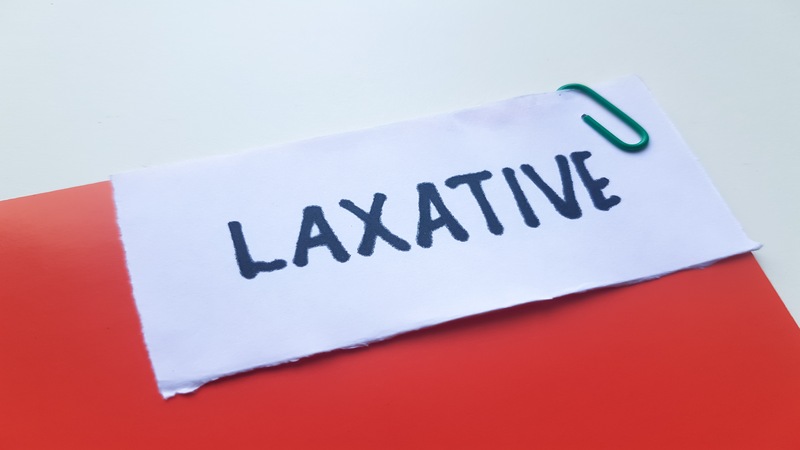 Pregnancy is a wonderful phase of a woman’s life. During this phase, women’s bodies experience a lot of changes and discomfort, such as vomiting, dizziness, and nausea. Many women may often complain about constipation, which causes difficulty in passing stool during pregnancy. Well, constipation is a very common thing during pregnancy, and many women prefer to have laxatives (stool softener) to ease the passing. But is it safe to get laxatives during pregnancy?
Pregnancy is a wonderful phase of a woman’s life. During this phase, women’s bodies experience a lot of changes and discomfort, such as vomiting, dizziness, and nausea. Many women may often complain about constipation, which causes difficulty in passing stool during pregnancy. Well, constipation is a very common thing during pregnancy, and many women prefer to have laxatives (stool softener) to ease the passing. But is it safe to get laxatives during pregnancy?
The shortest answer is yes, laxatives are safe during pregnancy. However, what type of laxatives is safe, how many times a pregnant woman can have laxatives, and is there any natural suggestion available? We’ve compiled all the information here to help you decide the right way to deal with constipation. Let’s have a look.
What is Constipation?

Typically, constipation is an infrequent dry bowel movement that results in abdominal pain. It can occur due to prolonged medication, dehydration, lack of fiber intake, and poor dietary habits. If a person is passing tools less than three times a week and has abdominal pain, it can be a sign of constipation. During pregnancy, nearly half of the pregnant women suffer from constipation and bloating.
What Causes Constipation During Pregnancy?

When a woman is pregnant, her body undergoes hormonal changes. Thus, when progesterone level rises in the body during pregnancy, muscles become relaxed, and their contraction power is reduced, causing difficulty in passing stool. Moreover, there is a high requirement for dietary fiber during pregnancy. Lack of fiber may worsen constipation and cause difficulty for women in passing stool. In addition, doctors increase iron supplements, which are an essential component of blood (1). Consuming high amounts of iron may also cause constipation during pregnancy.
How to Prevent Constipation in Pregnancy?

Dietary and hormonal changes during pregnancy can cause constipation. However, a woman can follow some lifestyle changes to ease down stool passing.
- Increasing your water intake during pregnancy. Make a habit of drinking 8-12 cups of water each day. Moreover, you can eat water-rich foods such as celery, carrots, lettuce, melons, strawberries, and oranges (2).
- Start consuming 25 gms of fiber per day to get relief from constipation (3). Add high-fiber food to the diet, such as whole grains, nuts, beans, and seeds. Moreover, you can add fiber supplements as per doctor recommendation.
- Avoid consuming refined grain based food such as white bread, pasta, refined cereals and white rice as it can result in constipation.
- Start consuming probiotics to balance gut bacteria, which helps to increase digestion (4). However, before adding probiotics, supplement ensures to get doctor recommendation.
- Do regular exercise such as walking, pilates, pregnancy yoga and any other physical activity that keep muscles toned.
Home Remedies to Ease Constipation During Pregnancy

Our grannies and nannies are the best advisors when it comes to having home remedies to ease constipation during pregnancy. These are relatively safer and easily available in kitchens.
- Warm Lemon Water: Some research also suggests that warm lemon water stimulates digestion for easy bowel motion. If you have constipation during pregnancy, take a glass of warm water and squeeze a half lemon into it. Drink it every morning and before meals.
- Flaxseeds: These seeds are rich in omega-3 fatty acids and fiber that help in easing constipation. You can add grounded flaxseed in cereal bowel, yoghurt or gradually eat a teaspoon of flaxseed with water (5).
- Aloe-Vera Juice: Drinking a small amount of aloe vera juice can cause a laxative effect that relieves constipation. Moreover, it is safe to consume during pregnancy, but sure to consider healthcare advice (6).
- Chia Seeds: These seeds are also rich in omega-3 fatty acids and fiber. It helps in softening stool for ease of bowel motion. Before consuming chia seeds, soak them in the water for at least 1-2 hours and consume them in the water. You can add it to warm lemon water for a better effect (7).
- Ginger Tea: Herbal tea or ginger tea is very effective in improving digestion and relieving constipation. The researcher also suggests herbal tea is safe during pregnancy. But be sure to drink only a cup of herbal-based ginger tea during pregnancy and avoid herbal tea with laxative properties without having an expert doctor’s recommendation.
Is It Safe To Use Laxatives During Pregnancy?
If home remedies do not give you relief from constipation, laxatives during pregnancy are safe to use. Your healthcare provider may suggest you dome laxatives such as milk of magnesia during pregnancy as a stool softener. It contains docusate for reducing constipation. However, make sure to proceed with natural remedies in the first place to ease constipation. If none of the above practices works, then ask for laxatives from doctors.
Laxatives in Late Pregnancy

Here are some useful recommendations for laxatives in late pregnancy that are considered safe to ease constipation.
Osmotic Laxatives: These types of laxatives are useful for relieving constipation during pregnancy. They help draw water inside the intestine to soften stools (8).
Bulk-forming Laxatives: Some laxatives such as polycarbophil (FiberCon, Equalactin) and psyllium (Konsyl, Metamucil) are really helpful in passing stool frequently. Bulk-forming laxatives mimic fiber, and they increase stool water absorption. Although these laxatives are considered safe during late pregnancy, some bulk-forming laxatives, such as psyllium, may cause allergic reactions. Therefore, you are advised to ask for your doctor’s recommendation before consuming laxatives (8a).
Side Effects of Using Laxatives During Pregnancy

Laxatives are generally safe to consume during pregnancy to ease constipation. However, some laxatives can cause side effects during pregnancy. Some of the common side effects are abdominal pain, dehydration, bloating, delirium, electrolyte imbalance, and fluid loss. Therefore, we advise you to avoid consuming laxatives in excess or without a doctor’s recommendation. In addition, you should avoid saline laxatives, castor oil-based laxatives, mineral oil laxatives, cod liver oil laxatives, and psyllium. These types of laxatives may prevent the absorption of minerals and vitamins along with nutrient absorption.
Laxatives for Pregnancy Constipation

Some examples of laxatives for pregnancy constipation that are considered to be safe are listed below.
- Macrogols: They help to enhance water content within stools so that they can pass effortlessly.
- Lactulose: The sugar-based laxative draws water into the stool, making it softer for easy bowel movement (9).
- Bisacodyl: This is a laxative stimulant that increases water retention into stool and stimulates easy bowel movement.
- Polyethylene Glycol: This is an osmotic laxative that helps to pull water into stool from nearby tissue and soften it for easy passing.
- Docusate Sodium: This laxative helps to stimulate muscles for bowel movement so stool can pass easily (10).
In a nutshell, laxatives during pregnancy can be safer to consume for easy bowel motion. However, before you start trying laxatives, we advise you to follow natural remedies, regular exercise and keep yourself hydrated to avoid constipation issues. If natural remedies do not give you relief, get a doctor’s advice for laxatives during pregnancy to get relief from constipation.
FAQs
1. What Laxatives Are Safe During Pregnancy?
Docusate Sodium, Polyethylene Glycol, Bisacodyl, Lactulose, and Macrogols are considered safe during pregnancy.
2. How Do I Relieve Constipation During Pregnancy?
Stay hydrated, eat fiber-rich food, and drink lukewarm water with lemon every morning to get relief from constipation during pregnancy.
3. Is It Ok To Push Hard To Poop While Pregnant?
No, it is not safe to push hard to poop while pregnant because it is uncomfortable and may lead to anal fissures and hemorrhoids.
4. Does Constipation Affect Baby Movement?
No, constipation during pregnancy does not affect baby movement.
References
- National Institute Of Health, Fact Sheet-Iron – https://ods.od.nih.gov/factsheets/Iron-HealthProfessional/
- American College of Obstetricians and Gynecologists (ACOG) – https://www.acog.org/womens-health/experts-and-stories/ask-acog/how-much-water-should-i-drink-during-pregnancy
- UCSF Health medical specialists have reviewed this information – https://www.ucsfhealth.org/education/increasing-fiber-intake
- Hemarajata P, Versalovic J. Effects of probiotics on gut microbiota: mechanisms of intestinal immunomodulation and neuromodulation. Therap Adv Gastroenterol. 2013 Jan;6(1):39-51 – https://www.ncbi.nlm.nih.gov/pmc/articles/PMC3539293/
- Parikh M, Maddaford TG, Austria JA, Aliani M, Netticadan T, Pierce GN. Dietary Flaxseed as a Strategy for Improving Human Health. Nutrients. 2019 May 25;11(5):1171. – https://www.ncbi.nlm.nih.gov/pmc/articles/PMC6567199/
- Aloe, Brigham And Women’s Hospital, medically reviewed online by Bianca Garilli MD, Chris Southard RN and Jessica Gotwals RN BSN MPH – https://healthlibrary.brighamandwomens.org/conditions/pregnancy/
- Khalid W, Arshad MS, Aziz A, Rahim MA, Qaisrani TB, Afzal F, Ali A, Ranjha MMAN, Khalid MZ, Anjum FM. Chia seeds (Salvia hispanica L.): A therapeutic weapon in metabolic disorders. Food Sci Nutr. 2022 Dec 15;11(1):3-16. – https://www.ncbi.nlm.nih.gov/pmc/articles/PMC9834868/
- Brigstocke S, Yu V, Nee J. Review of the safety profiles of laxatives in pregnant women. J Clin Gastroenterol. 2022;56(3):197-203. – https://www.gastroenterologyadvisor.com/news/chronic-constipation-pregnancy-otc-prescription-laxatives-safety-profiles/
- NHS, How and when to take lactulose – https://www.nhs.uk/medicines/lactulose/how-and-when-to-take-lactulose/
- Mother To Baby | Fact Sheets. Brentwood (TN): Organization of Teratology Information Specialists (OTIS); 1994-. Docusate Sodium. – https://www.ncbi.nlm.nih.gov/books/NBK582677/
